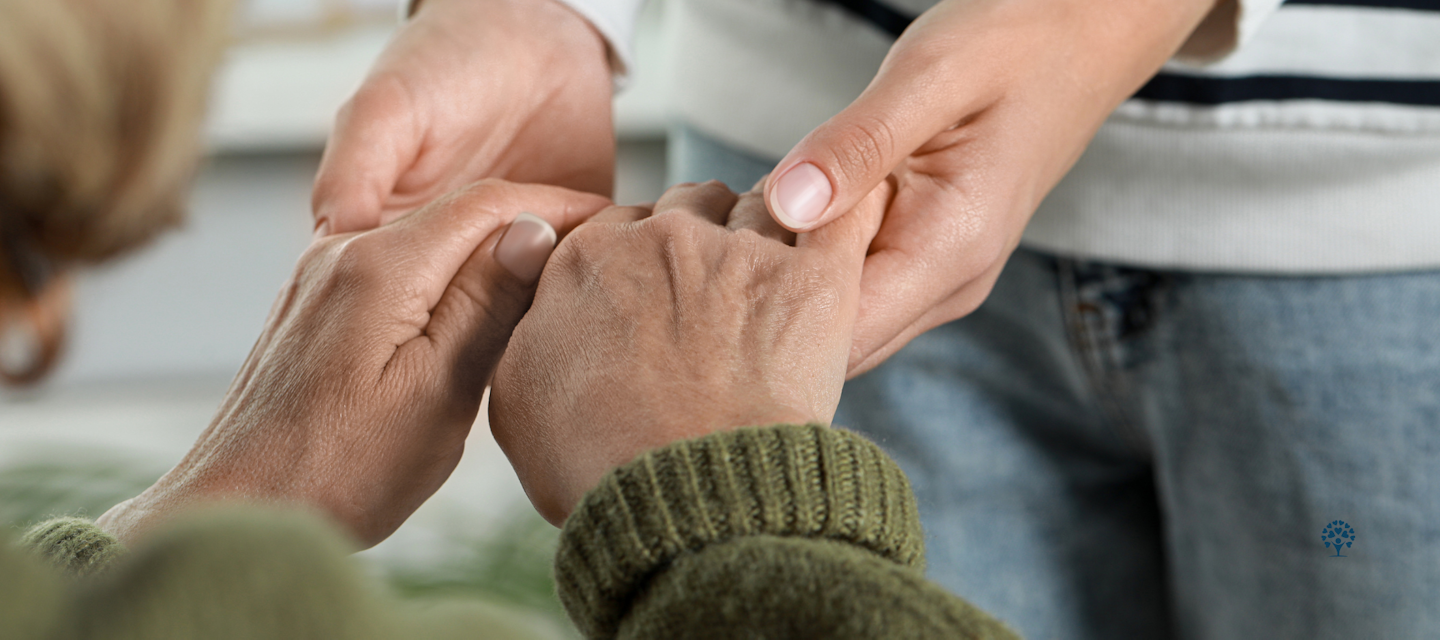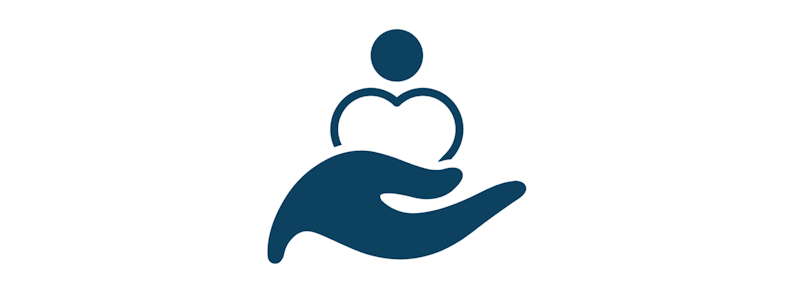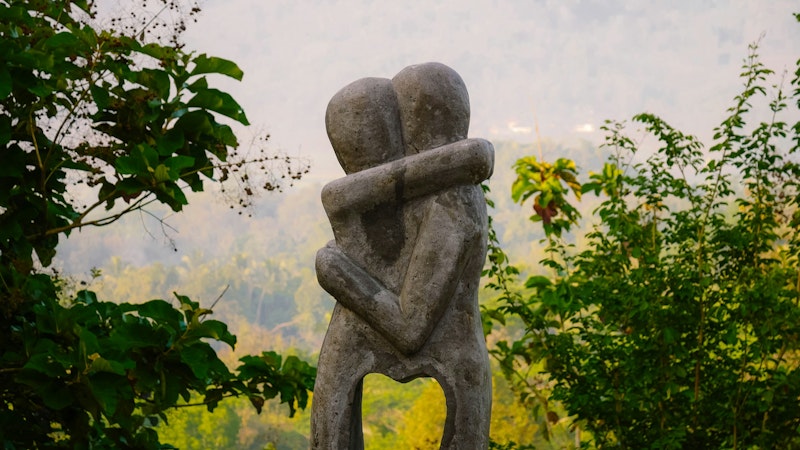Guide For Caregivers
This guide is dedicated to caregivers, offering insights, practical tips, and emotional support to help them navigate the unique challenges they face while caring for someone with cancer.
September 8, 2025

🔸Many roles of the primary caregiver
A strong anchor support in someone’s cancer journey is their primary caregiver. In this post, we focus on the primary caregiver whose love, strength, care and support are pivotal in navigating cancer diagnosis and treatment.
🔸What is caregiving?
Caregiving is a broad term that encompasses every act of love, kindness and compassion in the cancer journey. Being present at every medical appointment, making sense of the test reports and treatment plans, ensuring comfort, nutrition and exercise, dealing with the routine and the unexpected, holding it all together with quiet grace, hugs and warm smiles and sometimes gentle firmness with good intentions.
🔸Who is the primary caregiver?
Spouse, partner, parent, adult child, family relative, friend – any one of these can be the primary caregiver. The primary caregiver is the main point of contact and communication on behalf of the patient. A person with constant and continuous presence from the time of diagnosis who cares for the individual undergoing cancer treatment and liaises with the hospital and medical team and any other support entities such physiotherapists, nutritionists, home nursing staff, cancer care coaches and counsellors.
Sometimes the primary caregiver’s role is shared between individuals depending on their personal, professional and family circumstances. Whether it is one individual or a team of individuals collectively working as the primary caregivers, a mindful and pragmatic approach to managing the caregiving process contributes positively to the caregiving experience.

🔸Tips for managing the caregiving process with compassion and planning
Caregiving doesn’t come with an instruction manual or a protocol. Caregiving begins with the cancer diagnosis, working out the immediate steps in the treatment plan and takes shape over time with the unfolding cancer journey. Setting up some simple structures in the caregiving process is not only helpful but also reassuring to everyone involved in the treatment process. Along with practical organization, caregiving is an act of compassion - towards yourself and your loved one. It means being present, patient, and sensitive to their needs, emotions, and pace, while offering reassurance and creating a sense of safety.
Some helpful steps include:
· Creating a calendar and scheduling notifications for dates and times of treatment appointments and update any rescheduling. Share the calendar and notifications with the individual undergoing treatment and coordinate travel arrangements ahead of time.
· Starting a ring binder folder to file all discharge summaries after surgeries, chemotherapy, radiotherapy and immunotherapy appointments, medication protocols, lab reports, and insurance documents as a single repository of all hospital and insurance records. Some information may reside on hospital and insurance provider apps, others may be sent by email, and some others may be handed over as physical documents. Set up a system for filing, storing and sharing of all electronic and paper-based information that is easily accessible. Extremely handy in case of any medical emergencies, change of treatment plan, handover from one medical team to another within or outside the hospital, changeover of any insurance coverage and insurance service provider.
· Beginning a food diary to keep track of meals and snacks to track protein and fibre intake in each meal or snack to ensure optimum nutrition aligned to the dietary needs. A food diary with daily records is also very handy to track any adverse reactions such as nausea, vomiting, diarrhoea or constipation particularly after chemo rounds to adapt the meals and snacks.
· Charting out the medication protocol on a plain sheet of paper and putting it up on the refrigerator or by the bedside with notifications on the phone to stay on schedule.
Simple steps such as these are enormously helpful and reassuring to the person undergoing treatment and take care of any miscommunication in handing over from one caregiver to another, including any home nursing support.
🔸Selfcare for the primary caregiver
As hard as it might be to find time for oneself, small acts of self-care such as walking or exercising, enjoying a quiet moment alone, or taking a nap are valuable for primary caregivers to replenish and refresh and carry forward the caregiving journey. It’s also important to open up to others who understand what you’re going through. Connecting with people in similar situations, such as joining a support group, can be deeply reassuring. In the UAE, caregivers can join the Facebook group “Cancer Support UAE” to share experiences, ask questions, and find emotional support.
Caregiving is a privilege and an honour. Caregiving for cancer care is challenging and yet deeply purposive and fulfilling. With some careful planning and compassion, the primary caregiver or a set of individuals sharing the primary caregiving can make cancer treatment a journey of strength and reassurance.
✨ YOU ARE NOT ALONE
At Cancer Care UAE, we understand that being a caregiver can feel both deeply meaningful and incredibly overwhelming. That’s why we’re here with resources, community, and professionals ready to support you every step of the way. If you need someone to talk to, want guidance on supporting your loved one, or have questions about anything in this guide, don’t hesitate to reach out.
Caring for someone with cancer is an act of courage and love, and your well-being matters, too. Asking for help or seeking answers is not a sign of weakness, but a sign of care: for your loved one, your journey, and your peace of mind. Your voice matters 💛
MADHUMITA BANERJEE I am a business researcher, consultant and educator with experience across Asia, Europe, UK and the UAE, based in Dubai. My professional entity and research on consumers, brands, cultures and organizations got realigned with our Mum’s cancer diagnosis and its impact on our family. Along with my core business research areas, I study the socio-cultural aspects of women’s cancer and write about cancer care, cancer prevention communication and wellbeing.
Subscribe to our newsletter
Stay informed, inspired, and supported! Our monthly newsletter delivers expert advice, real stories, and practical tips to help you navigate life during and after cancer with confidence and hope.




